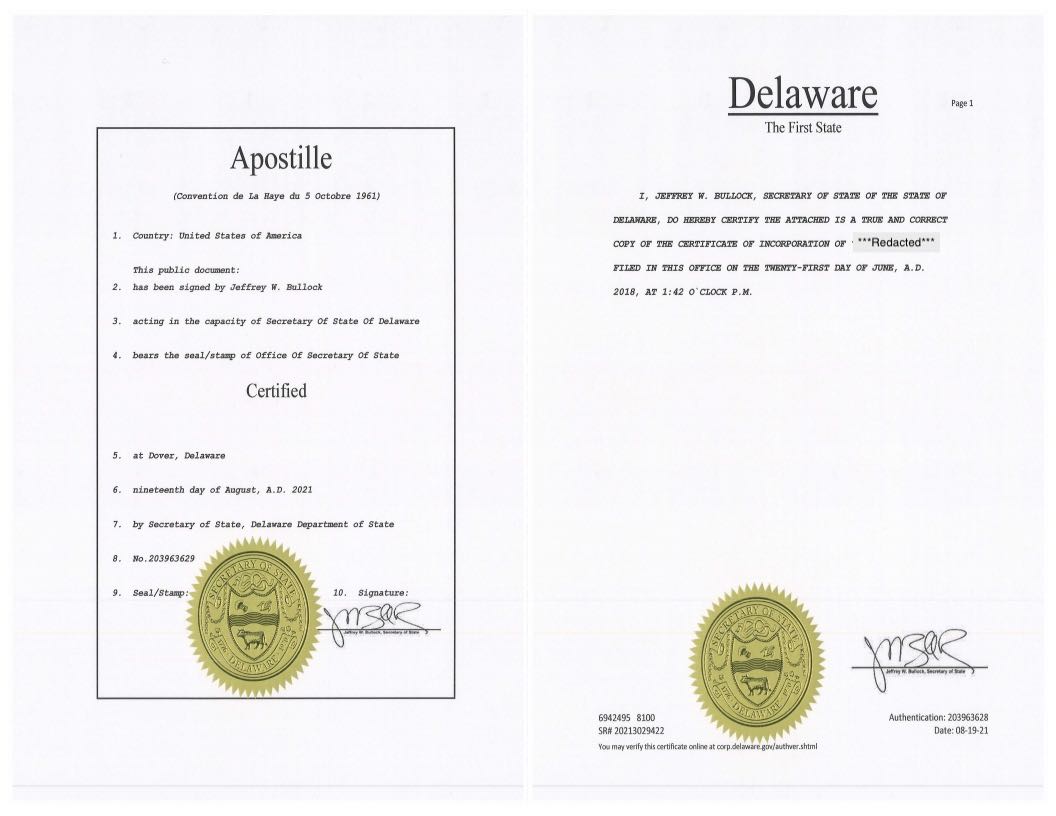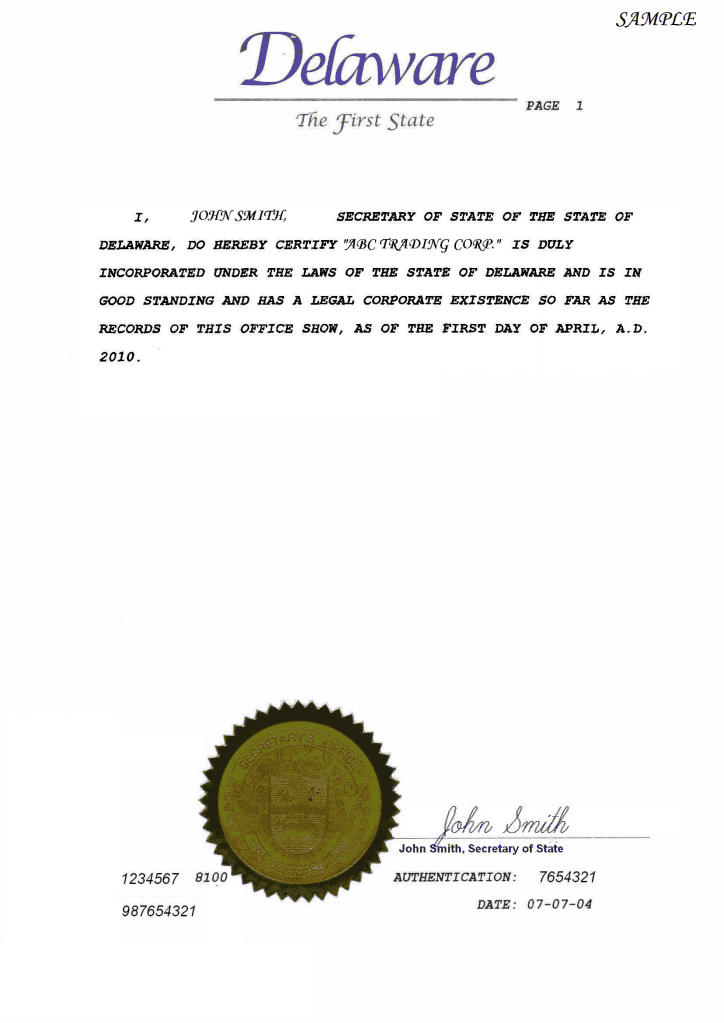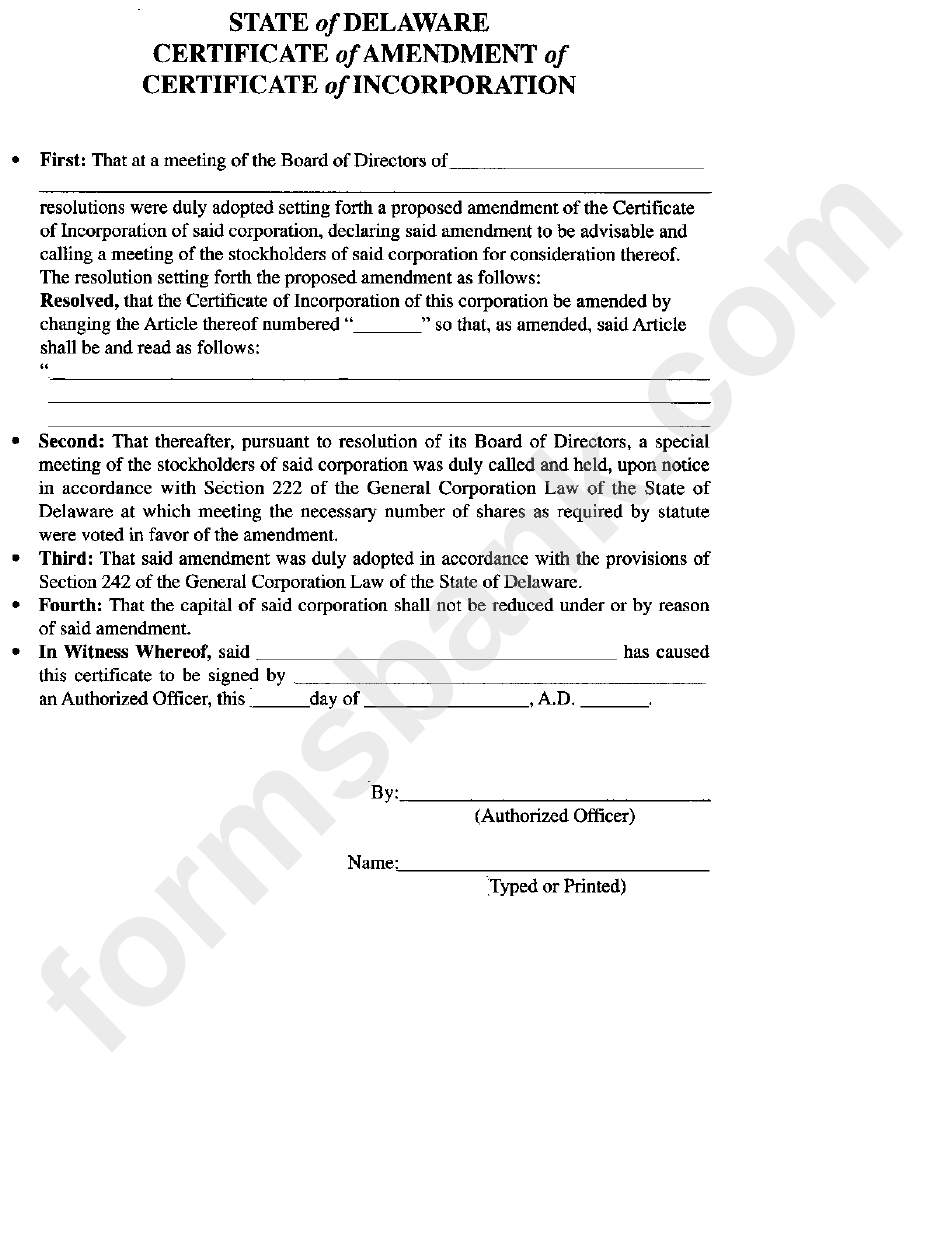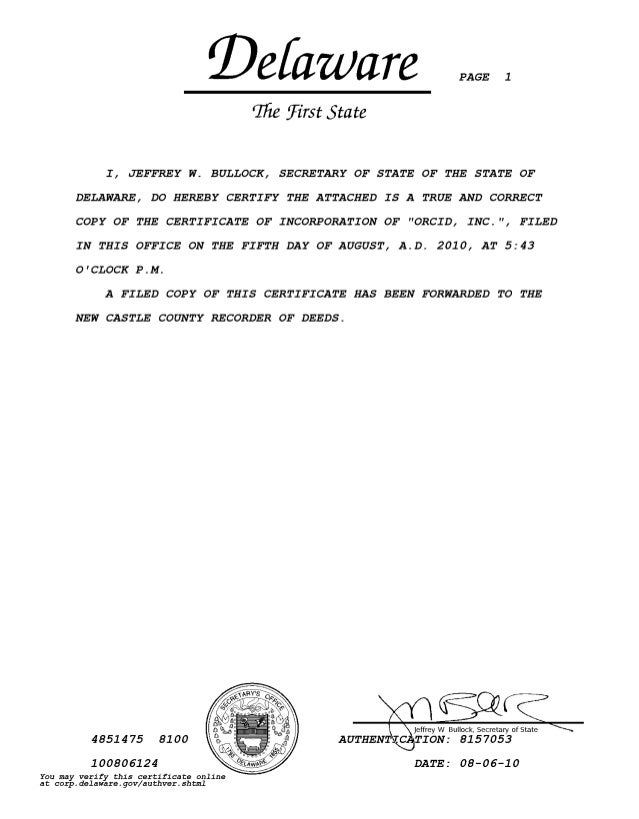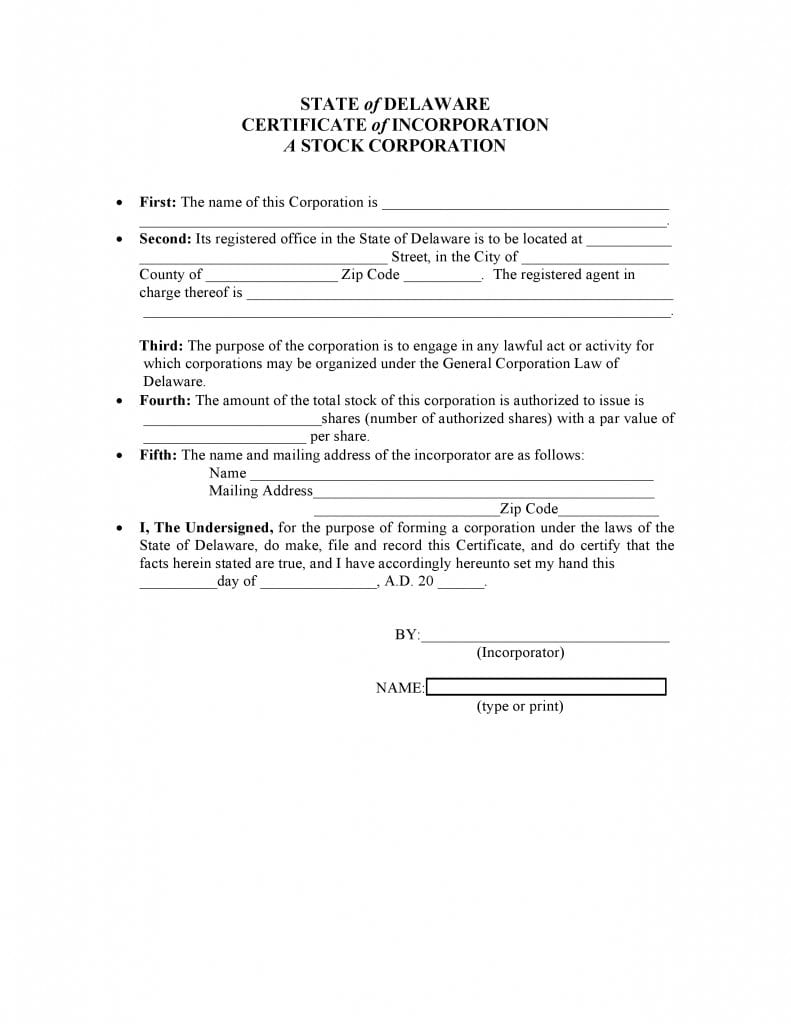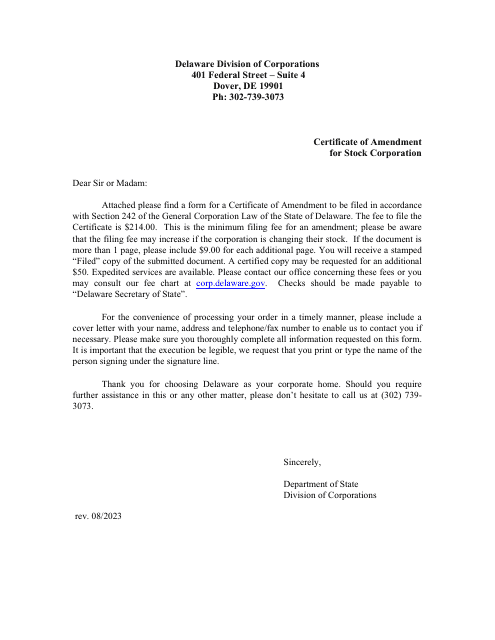Delaware Amendment To Certificate Of Incorporation

Imagine a bustling town hall meeting, not unlike those in a classic movie, but instead of discussing zoning laws or school budgets, the topic is far more nuanced and complex: the intricacies of corporate governance. Lawyers in crisp suits, entrepreneurs with bright eyes, and shareholders with curious expressions all gathered, not in a physical hall, but in a virtual space, collectively pondering the implications of a proposed change to a company's foundational document. This particular scenario, repeated across boardrooms and digital forums, highlights the quiet revolution happening within the corporate world regarding amendments to the Delaware Certificate of Incorporation.
The core of this conversation lies in understanding the power and impact of modifying the Certificate of Incorporation, especially under Delaware law, which governs a significant portion of corporations worldwide. It’s not just a paperwork shuffle; it's a strategic move that can reshape a company's future, affecting everything from shareholder rights to its ability to attract investment and pursue long-term goals.
The Delaware Difference: A Foundation for Corporate Law
Delaware holds an outsized influence on corporate law globally. This is because over 60% of Fortune 500 companies are incorporated in Delaware, attracted by its business-friendly legal framework and a well-established court system specifically focused on corporate matters.
The Delaware General Corporation Law (DGCL) provides a flexible yet robust framework for corporations, allowing them to adapt to changing business environments. One of the key aspects of this framework is the ability to amend the Certificate of Incorporation, the company's founding document, to reflect evolving strategies and priorities.
What is the Certificate of Incorporation?
Think of the Certificate of Incorporation as the company's birth certificate and constitution all rolled into one. It outlines the company's name, purpose, authorized shares, and other fundamental aspects of its existence.
It’s a public record, easily accessible, that provides essential information about the corporation to shareholders, creditors, and the general public. It defines the relationship between the corporation, its shareholders, and its directors.
Because the business world is constantly evolving, the ability to amend this foundational document is critical. A well-considered amendment can be a powerful tool for navigating complex challenges and capitalizing on new opportunities.
Amendment Process: A Carefully Orchestrated Procedure
Amending the Certificate of Incorporation is not a simple task. It's a process governed by the DGCL and the company's own bylaws, typically involving several key steps.
First, the board of directors must approve a resolution proposing the amendment. This resolution outlines the specific changes to be made and the reasons for the amendment.
Next, the proposed amendment must be submitted to the shareholders for a vote. The required level of shareholder approval varies depending on the nature of the amendment, but generally requires a majority vote.
Once shareholder approval is secured, the amendment must be formally filed with the Delaware Secretary of State. Only after this filing does the amendment become legally effective.
Common Reasons for Amendments: Adapting to Change
Companies amend their Certificate of Incorporation for a variety of reasons, often driven by strategic considerations or regulatory changes.
One common reason is to increase the number of authorized shares. This might be necessary to facilitate a stock split, raise capital through equity offerings, or grant stock options to employees.
Another frequent reason is to change the company's name or registered agent. These changes can reflect a rebranding effort or a change in the company's physical location or legal representation.
Companies may also amend their certificates to alter the rights and preferences of different classes of stock, to better align capital structure. This could be needed to attract investment or resolve conflicts among shareholder groups.
Amendments are also used to adopt new governance provisions. Examples include adopting provisions to protect the corporation against hostile takeovers or to implement environmental, social, and governance (ESG) goals.
The Impact of Amendments: A Ripple Effect
The impact of an amendment to the Certificate of Incorporation can be far-reaching. It can directly affect shareholder rights, influence corporate governance, and impact the company's long-term strategy.
For example, an amendment that dilutes shareholder voting rights could lead to shareholder lawsuits and negative publicity. Conversely, an amendment that strengthens shareholder protections could enhance investor confidence and attract capital.
Amendments related to ESG factors are increasingly gaining traction. By incorporating these goals into the Certificate of Incorporation, companies signal their commitment to sustainability and social responsibility, which can be attractive to investors and consumers.
Navigating the Legal Landscape: Seeking Expert Advice
Given the complexity and potential impact of amending the Certificate of Incorporation, it’s crucial for companies to seek expert legal advice. Experienced corporate lawyers can guide companies through the process, ensuring compliance with Delaware law and helping them understand the potential consequences of their decisions.
Holland & Knight, a prominent law firm, provides guidance to businesses seeking to make changes to their Certificate of Incorporation. They can review the proposed amendment, advise on the legal implications, and help draft the necessary documentation.
Similarly, Richards, Layton & Finger is another Delaware-based law firm specializing in corporate law, offering comprehensive legal services related to amendments to the Certificate of Incorporation. Their expertise can prove invaluable in navigating the complex legal terrain.
A Modern Example: Corporate Purpose Amendments
A recent trend gaining momentum is the inclusion of specific public benefit purposes within the Certificate of Incorporation. This goes beyond the traditional goal of maximizing shareholder value.
Companies are now including language in their certificates to formally commit to considering the interests of stakeholders beyond shareholders, such as employees, customers, and the environment. This reflects a growing recognition that businesses have a broader social responsibility.
This type of amendment can be a powerful signal to employees, customers, and investors, demonstrating a commitment to ethical and sustainable business practices.
Looking Ahead: The Future of Corporate Governance
The ability to amend the Certificate of Incorporation is a fundamental aspect of corporate governance. As the business environment continues to evolve, this flexibility will become even more critical. Companies that can effectively adapt their governing documents to meet new challenges and opportunities will be best positioned for long-term success.
This also places a responsibility on shareholders to be informed and engaged in the amendment process. By understanding the implications of proposed changes, shareholders can play a vital role in shaping the future of their companies.
In a world of rapid change, the amendment to the Certificate of Incorporation stands as a potent reminder of the dynamic nature of corporate law and the enduring need for businesses to adapt and evolve.

